A Hamas official has said that no progress had been made at talks in Cairo on a ceasefire in the Gaza war.
It comes as Israeli Prime Minister Benjamin Netanyahu said a date was set for an invasion of Rafah, the enclave's last refuge for displaced Palestinians.
Israel and Hamas sent teams to Egypt yesterday for talks that included Qatari and Egyptian mediators as well as CIA Director William Burns. His presence underlined rising pressure from Israel's main ally the US for a deal that would free Israeli hostages held in Gaza and get aid to Palestinian civilians.
"There is no change in the position of the occupation (Israel) and therefore, there is nothing new in the Cairo talks," the Hamas official, who asked not to be identified, told Reuters.
"There is no progress yet."
In Jerusalem today, a day after Israeli forces pulled back from some areas of southern Gaza, Mr Netanyahu said he had received a detailed report on the talks in Cairo.
"We are constantly working to achieve our goals, first and foremost the release of all our hostages and achieving a complete victory over Hamas," Mr Netanyahu said.
"This victory requires entry into Rafah and the elimination of the terrorist battalions there. It will happen - there is a date." He did not specify the date.
Rafah is the last refuge for Palestinian civilians displaced by relentless Israeli bombardments that have flattened their home neighbourhoods. It is also the last significant redoubt of Hamas combat units, Israel says.
We need your consent to load this rte-player contentWe use rte-player to manage extra content that can set cookies on your device and collect data about your activity. Please review their details and accept them to load the content.Manage Preferences
More than one million people are crammed into the southern city in desperate conditions, short of food, water and shelter, and foreign governments and organisations have urged Israel against storming for fears of a bloodbath.
Hundreds of residents who had living in tents in Rafah returned to their devastated home areas today following the Israeli pull-back. Some rode on donkey carts, rickshaws and open-deck vehicles while some just walked.
"It is a shock, a shock ... the destruction is unbearable," said resident Mohammed Abou Diab. "I am going to my house and I know that it is destroyed. I am going to remove the rubble to get a shirt out," he added.
Palestinian medical officials said their teams had recovered more than 60 bodies from areas where the soldiers operated in the past months.
Western powers have voiced concern over the high Palestinian civilian death toll and the humanitarian crisis arising from Israel's military onslaught to destroy Hamas in the densely populated Gaza Strip.
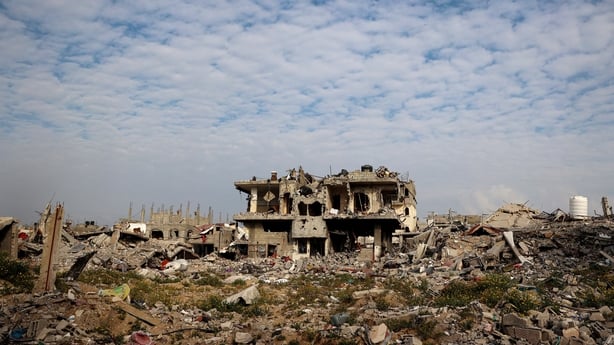
Some 33,207 Palestinians have been killed in six months of conflict, Gaza's health ministry said in an update today. Most of the enclave's 2.3 million people are homeless and many at risk of famine.
Hamas killed 1,200 people in southern Israel in the cross-border attack on 7 October last year that triggered the conflict, according to Israeli tallies. The Israeli army says over 600 of its soldiers have been killed in combat since.
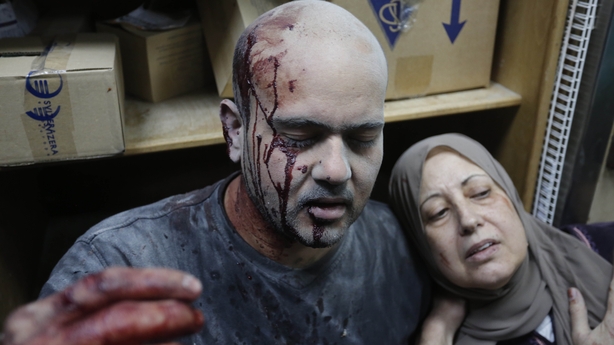
Some progress?
In Washington, a White House spokesperson said the US hoped to secure a hostage release deal as soon as possible since it would also lead to a ceasefire of around six weeks. Hamas is reviewing a new proposal now, John Kirby said.
At the weekend, Israeli Foreign Minister Israel Katz described the Cairo talks as the closest the sides have come to a deal since a short-lived November truce under which Hamas freed nearly half of its hostages.
Of the 253 people Hamas seized, 133 hostages remain captive. Negotiators have spoken of around 40 going free in the first stage of a prospective deal.
Two Egyptian security sources and state-run Al-Qahera News said some progress had been made in the Cairo talks. They said both sides had made concessions that could lead to a deal for a three-stage truce, with the release of any remaining Israeli hostages and a long-term ceasefire addressed in the second stage.
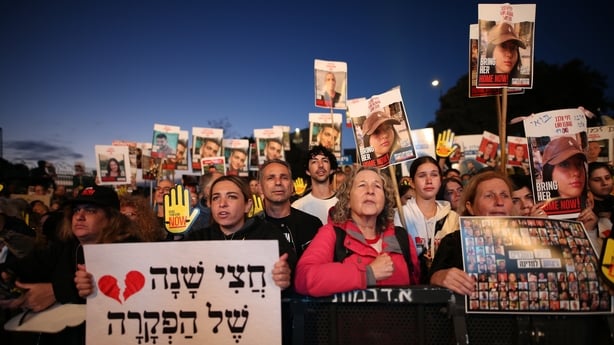
The concessions relate to freeing of hostages and Hamas' demand for return of displaced residents to northern Gaza, they said. Mediators suggested the return could be monitored by an Arab force in the presence of Israeli security deployments that would later be pulled back, they added.
Delegations left Cairo and consultations were expected to continue within 48 hours, the sources and Al-Qahera said.
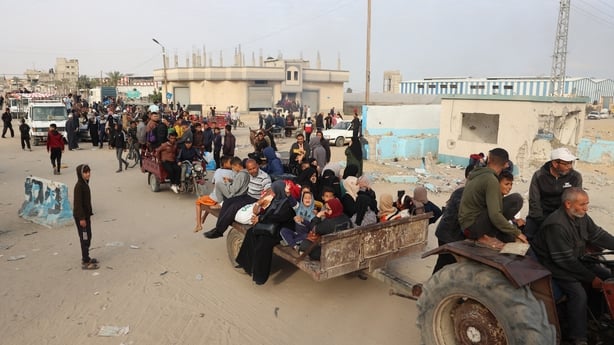
'Main demands'
However, a Palestinian official close to mediation efforts told Reuters that deadlock continued over Israel's refusal to end the war, withdraw forces from Gaza, allow all civilians to return to their homes and lift a 17-year-old blockade to allow speedy reconstruction of the coastal enclave.
These steps took precedence over Israel's prime demand for a release of hostages in exchange for Palestinians held in Israeli prisons, said the official, speaking on condition of anonymity.
"Regarding the exchange of prisoners, Hamas was and is willing to be more flexible, but there is no flexibility over our...main demands," he said.
Israel has ruled out ending the war shortly or withdrawing from Gaza, saying its forces will not relent until Hamas no longer controls Gaza or threatens Israel militarily.
Read more: What military support does the US provide to Israel?
'No longer safe'
As the war in Gaza has raged on, the wider Middle East has seen a surge of violence involving Iran-backed militant groups in Lebanon, Syria, Iraq and Yemen.
Israel was widely blamed for a strike early last week on the consulate building in Syria of Iran, sparking threats or retaliation from Tehran.
An adviser to Iran's supreme leader Ali Khamenei has warned that Israeli embassies were "no longer safe" after the strike in Syria that killed seven Revolutionary Guards members.
Mr Gallant said Israel was ready after the army had "finished all its preparations to react to any scenario that could arise regarding Iran".
The Israeli army also said it had reached "another phase" of preparation on its northern border with Lebanon, where it has traded fire with Iran-backed Hezbollah for months.
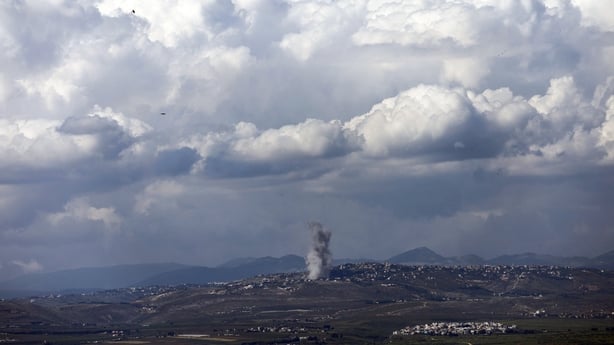
The Israeli military said it had killed a Hezbollah commander, Ali Ahmed Hussein of the elite Radwan Forces, in an overnight air strike in the area of Sultaniyeh in southern Lebanon.
United Nations officials said that six months of violence on the Israel-Lebanon border "must stop", urging de-escalation "while there is still space for diplomacy".
Israel's 98th commando division withdrew from Khan Younis and left Gaza "in order to recuperate and prepare for future operations," the army said.
